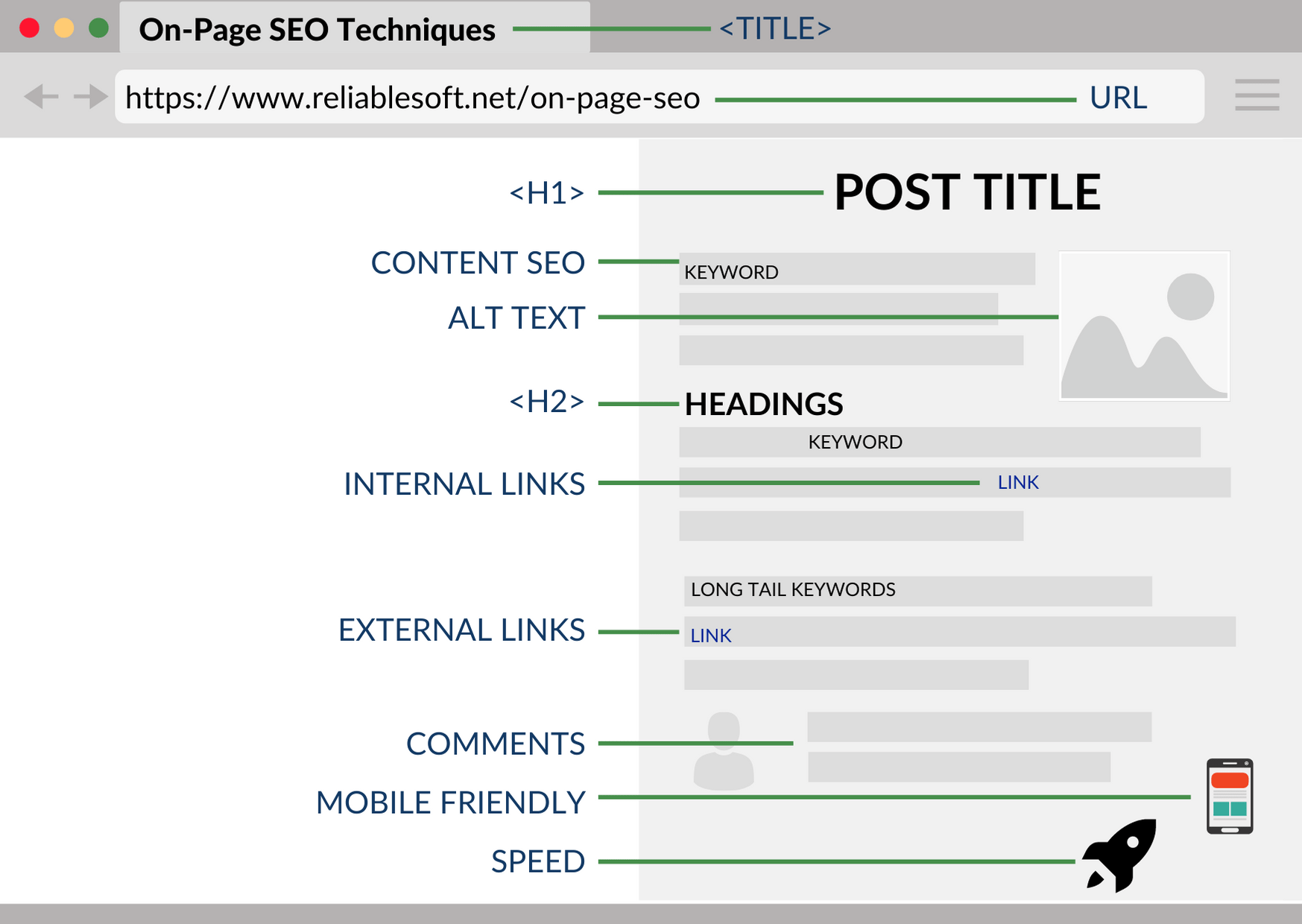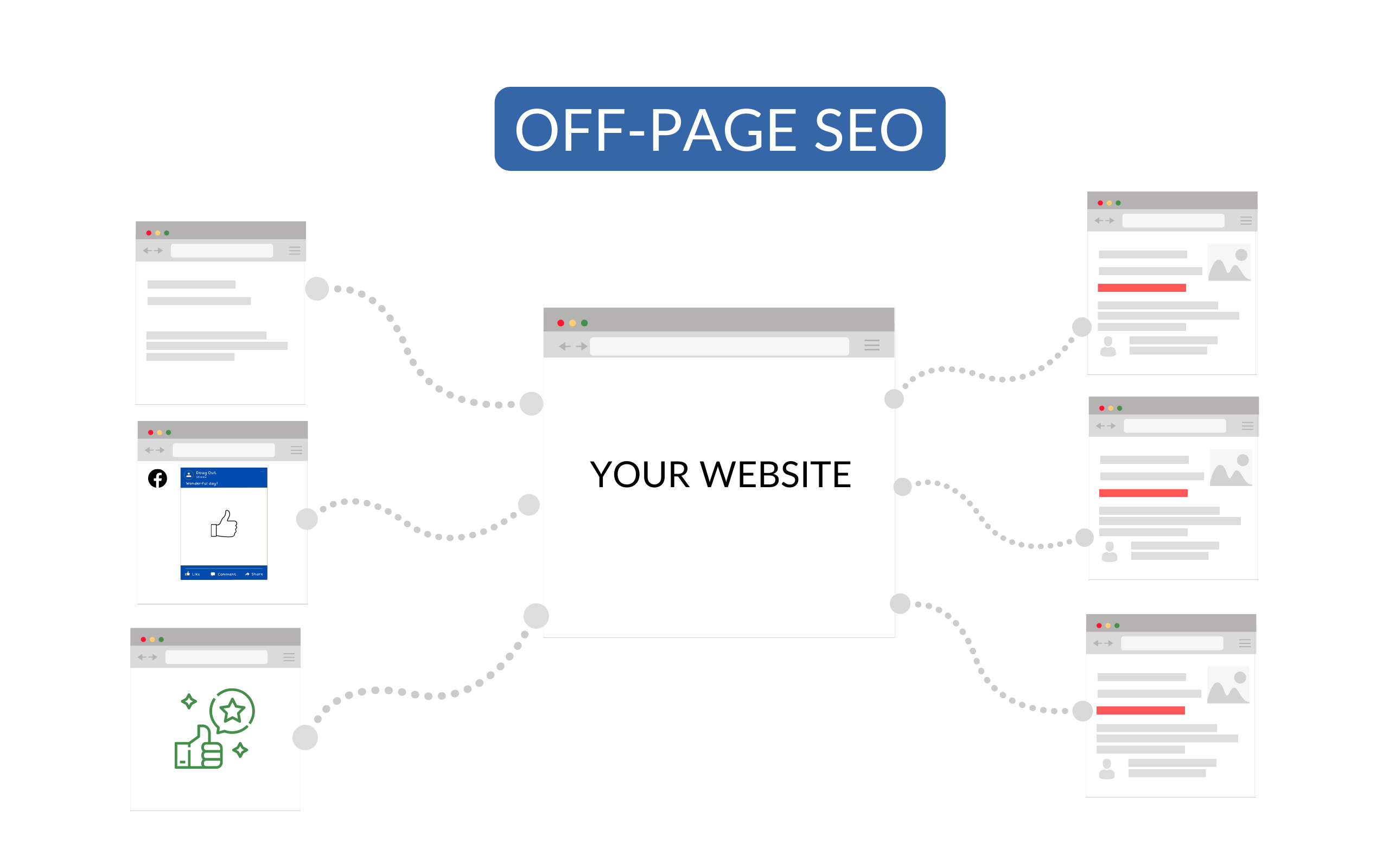[This is a test site and all posts are generated with ChatGPT unless indicated otherwise.]
Search Engine Optimization (SEO) is the practice of optimizing websites and online content to rank higher in search engine results pages (SERPs). By leveraging various SEO strategies, businesses can increase their online visibility and attract more organic traffic to their website. In this blog post, we’ll explore the different types of SEO strategies that can be used to improve your website’s search engine ranking and drive more targeted traffic to your site even with the right SEO tools.
Importance of SEO for Business
Here are the importance of SEO for businesses
- Increased Online Visibility
- Increased Website Traffic
- Increased Brand Credibility
- Increased Sales and Revenue
- Competitive Advantage
Overview of the Various SEO Strategies to be Covered
The various SEO strategies we would cover in this blog include the following
A. On-Page SEO Strategies
B. Off-Page SEO Strategies
C. Technical SEO Strategies
A. On-Page SEO Strategies
On-Page SEO is the practice of optimizing website pages to improve their search engine ranking and attract more organic traffic. This type of SEO is focused on optimizing the content and HTML source code of individual web pages to ensure that they are relevant and valuable to users and search engines. By optimizing on-page factors, businesses can improve their search engine ranking and drive more targeted traffic to their website.
On-Page SEO refers to the optimization of individual web pages to improve their ranking and visibility in search engine results pages (SERPs). This type of SEO involves optimizing various on-page factors, such as keyword usage, content quality, title tags, meta descriptions, internal linking, URL structure, image optimization, and user experience (UX) optimization.
Importance of On-Page SEO
1. Higher Search Engine Ranking
On-Page SEO is essential for improving the search engine ranking of web pages. By optimizing on-page factors, businesses can improve the relevance and quality of their web pages, which can lead to higher search engine rankings and more organic traffic.
2. Improved User Experience
On-Page SEO also focuses on improving the user experience of website visitors. By optimizing on-page factors such as content quality, internal linking, and user experience, businesses can provide a better user experience and increase engagement and conversions.
3. Increased Website Traffic
By optimizing on-page factors, businesses can attract more targeted traffic to their website. This can lead to increased brand awareness, higher conversion rates, and ultimately, increased revenue.
Key On-Page SEO Strategies
1. Keyword Research and Optimization
Keyword research and optimization are essential for On-Page SEO. By identifying relevant keywords and optimizing content around them, businesses can improve their search engine ranking and attract more organic traffic. Some key factors to consider when conducting keyword research include search volume, competition, and relevance to your business.
2. Content Optimization
Content optimization involves creating high-quality, relevant, and valuable content that meets the needs of your target audience. This includes optimizing content for keywords, using engaging headlines and subheadings, and incorporating multimedia elements such as images and videos.
3. Title Tags and Meta Descriptions
Title tags and meta descriptions are HTML elements that provide information about a web page to search engines and users. By optimizing title tags and meta descriptions for keywords and including compelling, relevant descriptions, businesses can improve their click-through rates and attract more targeted traffic to their website.
4. Internal Linking
Internal linking involves linking to other pages within your website. By optimizing internal links and ensuring that they are relevant and valuable to users, businesses can improve the user experience and increase engagement and conversions.
5. URL Structure
URL structure is an important factor in On-Page SEO. By optimizing URLs for keywords and ensuring that they are clear and concise, businesses can improve their search engine ranking and attract more targeted traffic to their website.
6. Image Optimization
Image optimization involves optimizing images for search engines and users. This includes using descriptive file names and alt tags, compressing images for faster load times, and ensuring that images are relevant and valuable to users.
7. User Experience (UX) Optimization
User experience (UX) optimization involves optimizing the design, layout, and functionality of a website to provide a better user experience. This includes optimizing page load times, improving navigation and usability, and ensuring that content is easy to read and understand.

On-Page SEO is an essential component of any SEO strategy. By optimizing on-page factors such as keyword usage, content quality, and user experience, businesses can improve their search engine ranking and attract more targeted traffic to their website. By implementing these key On-Page SEO strategies, businesses can
B. Off-Page SEO Strategies
Off-Page SEO refers to the actions taken outside of a website to improve its search engine ranking and attract more traffic. This includes building links, creating a strong brand reputation, and leveraging social media and other external platforms to improve visibility and drive traffic.
Off-Page SEO refers to the optimization of a website through external factors that are not directly related to the website itself. This includes building links, creating a strong brand reputation, and leveraging social media and other external platforms to improve visibility and drive traffic.
Importance of Off-Page SEO
1. Improved Search Engine Ranking
Off-Page SEO is essential for improving the search engine ranking of a website. By building high-quality backlinks, creating a strong brand reputation, and leveraging social media and other external platforms, businesses can improve their search engine ranking and attract more targeted traffic to their website.
2. Increased Brand Awareness
Off-Page SEO can also help businesses increase their brand awareness and visibility. By creating a strong brand reputation and leveraging social media and other external platforms, businesses can reach new audiences and attract more potential customers to their websites.
3. More Targeted Traffic
Off-Page SEO can help businesses attract more targeted traffic to their website. By building high-quality backlinks, creating a strong brand reputation, and leveraging social media and other external platforms, businesses can attract more potential customers who are interested in their products or services.
Off-Page SEO Strategies
1. Link Building
Link building is one of the most important Off-Page SEO strategies. This involves building high-quality backlinks from other websites to your own website. High-quality backlinks are a key factor in search engine ranking, as they signal to search engines that your website is trustworthy and authoritative.
2. Social Media Optimization (SMO)
Social media optimization (SMO) involves optimizing your social media profiles and content to improve your visibility and reach on social media platforms. By creating high-quality content that resonates with your audience and engaging with your followers, businesses can increase their brand awareness and attract more potential customers to their websites.
3. Brand Mentions and Reputation Management
Brand mentions and reputation management involves monitoring and managing your brand’s online reputation. This includes monitoring social media, review sites, and other online platforms for mentions of your brand, and responding to any negative comments or reviews in a timely and professional manner.
4. Influencer Marketing
Influencer marketing involves partnering with influencers in your industry to promote your brand and products. By leveraging the reach and influence of these influencers, businesses can reach new audiences and attract more potential customers to their websites.
5. Guest Blogging
Guest blogging involves writing and publishing high-quality content on other websites in your industry. By creating valuable content that resonates with the audience of these websites, businesses can attract more potential customers to their websites and build high-quality backlinks to improve their search engine ranking.

Off-Page SEO is an essential component of any SEO strategy. By building high-quality backlinks, creating a strong brand reputation, and leveraging social media and other external platforms, businesses can improve their search engine ranking, attract more targeted traffic to their website, and increase their brand awareness and visibility. By implementing these key Off-Page SEO strategies, businesses can stay ahead of the competition and achieve long-term success in the online marketplace.
C. Technical SEO Strategies
Technical SEO refers to the optimization of a website’s technical elements to improve its search engine ranking and user experience. This includes optimizing website speed, mobile-friendliness, and other technical factors that impact the website’s performance.
Technical SEO refers to the optimization of a website’s technical elements to improve its search engine ranking and user experience. This includes optimizing website speed, mobile-friendliness, and other technical factors that impact the website’s performance.
Importance of Technical SEO
1. Improved Search Engine Ranking
Technical SEO is essential for improving the search engine ranking of a website. By optimizing website speed, mobile-friendliness, and other technical factors, businesses can improve their search engine ranking and attract more targeted traffic to their website.
2. Enhanced User Experience
Technical SEO can also help businesses enhance their user experience. By optimizing website speed, mobile-friendliness, and other technical factors, businesses can improve the usability and accessibility of their website, which can lead to higher engagement and conversions.
3. Competitive Advantage
Technical SEO can give businesses a competitive advantage in the online marketplace. By optimizing website speed, mobile-friendliness, and other technical factors, businesses can stay ahead of the competition and provide a better user experience for their customers.
Key Technical SEO Strategies
1. Website Speed Optimization
Website speed optimization is one of the most important Technical SEO strategies. This involves optimizing the website’s loading speed to improve its user experience and search engine ranking. This can be achieved through various methods, such as optimizing images, compressing files, and using a content delivery network (CDN).
2. Mobile Optimization
Mobile optimization is another important Technical SEO strategy. With the increasing use of mobile devices, businesses need to ensure that their website is mobile-friendly and responsive. This includes optimizing the website’s layout, content, and functionality for mobile devices, as well as implementing mobile-specific features, such as click-to-call and mobile-optimized forms.
3. SSL Certificate
Implementing an SSL certificate is an important Technical SEO strategy. An SSL certificate is a security protocol that encrypts the data exchanged between the website and the user’s browser, which can improve the website’s security, trustworthiness, and search engine ranking.
4. Structured Data Markup
Structured data markup is another important Technical SEO strategy. This involves adding metadata to the website’s content to help search engines understand its meaning and context. This can improve the website’s visibility and search engine ranking, as well as enhance the user experience by providing more relevant and informative search results.

Technical SEO is an essential component of any SEO strategy. By optimizing website speed, mobile-friendliness, and other technical factors, businesses can improve their search engine ranking, enhance their user experience, and stay ahead of the competition. By implementing these key Technical SEO strategies, businesses can ensure that their website is optimized for both search engines and users, and achieve long-term success in the online marketplace.
Wrap-Up: Implementing the Right SEO Strategies
By implementing the right SEO strategies, businesses can improve their online visibility, drive more targeted traffic to their website, and ultimately increase sales and revenue. Whether you’re a small business owner or a digital marketer, understanding and implementing these strategies is essential for success in today’s digital landscape.

